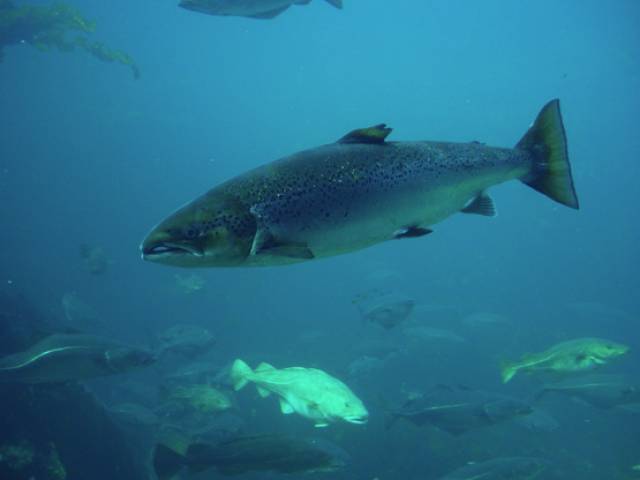To track Atlantic salmon movements from river to sea and back, millions of salmon have been tagged over the past 50 years as part of scientific international tagging programmes.
Recently, ICES published a co-operative research report documenting 50 years of marine tag recoveries from Atlantic salmon, and marking 2019’s declaration as International Year the Salmon.
Programmes have included tagging of smolts, migrating out from their freshwater nurseries to the sea and their recaptures in high-seas fisheries off Norway and the Faroes, in coastal fisheries around Greenland and upon return to home waters.
Other studies included tagging of adults caught at sea and their subsequent recaptures in home waters in coastal fisheries and by anglers.
“Tagging and related data efforts are crucial as scientists seek to improve understanding of wild Atlantic salmon distribution and migration at sea and the underlying causes of mortality,” said Niall O'Maoileidigh of the Marine Institute.
“This is particularly important given that, despite initiatives that have mitigated some declines, abundance of the species has continued to drop in the last two decades.”
Tagging has included various types of external ‘floy tags’ focusing in the past 20 years on coded wire tags, less than 2mm in length and delicately implanted into the nose cartilage of fish.
This report not only documents the history of these tagging programmes for posterity but also investigates migration patterns, timings, return rates, their changes and patterns.
“Mass marking techniques still provide basic information on survival rates, exploitation rates and migration in general. However, with current technology e-tagging is becoming far more informative, giving rise to information not only of the ‘when and where’ of tagging-releases and recaptures, but also on the movements, routes, depths and behaviours in-between,” O’Maoileidigh added.
Earlier this week Ireland’s first salmon of 2019 was caught and released on New Year’s Day in Co Donegal.































































